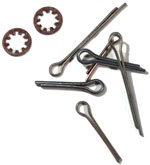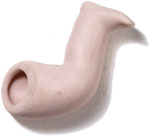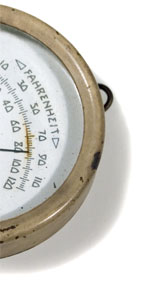SOMETHING MADE ME STOP
A short story by Maureen O'Hara Pesta
“Hi, Margaret. Laurie Stanton Carter added you as a friend on Facebook. We need to confirm that you know Laurie in order for you to be friends on Facebook. Thanks, the Facebook Team.”
Laurie? Laurie of 60 years ago?
Once upon a time you met, played Wild West cowboys in your backyard, and went your separate ways. Today that little girl gallops out of the past, all grown up and scaring me again.
We lived next door as kids, in brand new homes with the lingering fragrance of pine boards. Construction materials—planks, scraps of lumber, empty plaster bags—lay piled at the edges of our treeless, crabgrass yards.
A red sliding board marked the exact center of my backyard. The metallic slide radiated scorching waves of heat, threatening to fry our legs.
To cool off, we’d play in the sprinkler or sit in a large galvanized steel washtub filled with water from the garden hose. After just a few dips in the tub, the surface of the water was covered in blades of grass from our bare feet.
Laurie’s yard featured a vegetable garden, a towering scarecrow with outstretched arms, and a clothesline taut between two metal posts.
If Laurie’s mom wasn’t pulling weeds out back she was sweating over the kitchen stove, canning her beans or corn or tomatoes, whatever was in season. Tag, a panting old cocker spaniel and a permanent kitchen fixture, loafed in a corner on his rag rug.
That’s how I remember Mrs. Stanton. Large, flushed, wearing a flowery patterned housedress and ruffled cotton apron even for her weeding chores. A hairnet kept her bun in place.
The back boundaries of our yards bordered on private-school property. Tempting us to trespass were bleachers, a lush green hockey field, and buckeye trees.
On the other side of my house two dirty little boys angrily peered out from what I called their “jail,” a picket fence with a gate padlocked shut. They were of no use as playmates. So Laurie and I passed the summer days together.
One afternoon, sitting at Laurie’s steel-top kitchen table, I reached inside my mouth to feel a loose tooth. Wiggling it back and forth I gathered the courage to yank it out.
The tooth had a little bloody spot on it. Mrs. Stanton gave me a piece of waxed paper to wrap it up. I placed it carefully in the pocket of my shorts. I explained to Laurie and her mom that I would be hiding it under my pillow that night. The next morning I’d be sure to find money from the tooth fairy.
Mrs. Stanton turned to me from her boiling pots of glass jars. “You don’t believe that story, do you, Margaret?" she said. "And Santa Claus. Of course you know there's no Santa Claus.”
My face must have worn a doubtful expression, so she carried on. “It’s just your parents, honey. They wait until you’re asleep and then they get your presents out of closets and put them around the tree.”
I don’t remember my response, but I do remember this: What she said did not shake my faith in Santa, not one bit. Now I simply did not trust her.
A little later, Laurie and I headed out back to play our favorite game of cowboys, happily racing across the weedy range.
We were the Lone Ranger’s Silver and Roy Rogers’ Trigger, snorting and tossing our horsey manes, slapping ourselves on the thighs to make ourselves run faster.
When it was time to shoot the rustlers we changed roles, becoming the good-guy cowboys waving pistols and shooting smoky red caps. The smell of sulphur from the caps mingled with the dust kicked up by the hoofs of our imaginary steeds.
Galloping across our backyard badlands, we headed toward the hockey-field prairie and our secret cowboy fort under the bleachers. From there we would concoct the next development in the afternoon’s story line.
Our brave horses raced to clear the hurdle of piled-up construction lumber at the back edge of the yard. But in one 60-year-ago nanosecond, the fantasy collapsed.
I see it still -- stop-action -- in my mind. A clear blue sky, cloudless. Laurie in the air, braids flying. Laurie landing, head first.
Grassy insects buzzed. A bee crawled from under the lumber and clumsily took flight. Sheets on the clothesline snapped in the summer breeze. And Laurie’s blood pooled on a board.
Laurie stared up at me from the ground, her forehead gashed, and made no sound.
The strange thing is, I wanted to laugh. Tripping is funny and her braids, splayed across the splintered wood, looked weird. But something made me stop. In that brief moment, I rejected the urge. This wasn't funny, I realized. Not a game anymore. So I ran for help. I ran so hard my side ached.
Mrs. Stanton dashed out the kitchen door to help her daughter. Gasping for breath, I bent over and tried to recuperate. I felt in my pocket for the tooth. It was still there, safe.
The next afternoon, back in Laurie’s kitchen, I heard all about the doctor and the stitches. I couldn’t actually see the stitches because her head was bandaged. Iodine seeped through the bandage. The two of us were drinking buttermilk, although I was not that fond of it. I decided not to take any if it was ever offered again.
I did not tell them about the quarter I found under my pillow that morning. I wasn’t sure what Mrs. Stanton would say. Probably something I wouldn’t like. I had my doubts about the tooth fairy, but not about Santa.
I fingered the quarter in my pocket. The plan was to buy a little plastic statue of St. Christopher carrying the baby Jesus, a figure that would absorb light and then glow green and reassuringly in the darkness on my bedroom night table. The statue was for sale in the back of our parish church.
While we drank our buttermilk, Laurie’s mom was hard at work grinding meat into hamburger. Her metal grinder was clamped to the countertop. The window above the counter was open, and the breeze wafted the smell of raw meat across the room.
“I have a special cookie for you, Margaret,” Mrs. Stanton said. “This will go with your milk.”
I bit into the rock-hard, flavorless cookie. Mrs. Stanton watched me closely. She and Laurie exchanged glances.
“How do you like it?” She went back to grinding the meat.
I didn’t know what to say.
“Oh, honey,” she said, “ it’s not really a cookie. It’s one of Tag’s dog biscuits! Poor Tag.” She stopped and glanced at the dog, who perked up his ears ever so slightly. “Do you want a biscuit, too?”
Laurie laughed. Tag blinked stupidly and yawned.
My mind raced to try understand what just happened. She said it was a cookie. It wasn’t funny. That was a lie! Why did she do that? I just wanted to go home.
I didn’t tell mom what happened. I thought she might get really mad. I kept it to myself.
A few days later a big, yellow Mayflower van arrived at our house. After everything was loaded on the truck, my parents and I boarded an overnight train to a new city, far away. We ate spaghetti for dinner in the dining car. A big mistake, I still remember today. It splattered all over my pretty outfit.







